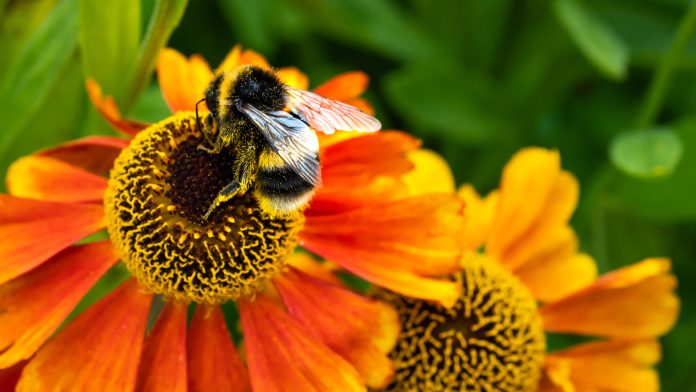
Bees are naturally heat-tolerant, but as global temperatures rise, even these resilient pollinators are being pushed to their limits — with serious consequences for the food humans rely on.
Scientists are increasingly concerned that extreme heat, alongside other environmental pressures, is contributing to the global decline of bee populations, both wild and managed. And that could spell disaster for agriculture, as bees play a crucial role in pollinating fruits, vegetables, nuts, and other crops.
While bees can typically withstand high temperatures, researchers say that heat stress can weaken their immune systems, reduce food-gathering efficiency, and interfere with reproduction. Combined with habitat loss, pesticide exposure, disease, and reduced forage availability, climate change could be a tipping point.
“As bees heat up, they dehydrate — and that happens well before they reach their overheating limits,” explains Kevin McCluney, a biology professor at Bowling Green State University in Ohio. “This dehydration limits their ability to keep pollinating.”
McCluney’s team discovered that when bees become stressed from heat, they prioritize finding shade or water rather than collecting pollen. This not only impacts the plants that depend on them but also the bees’ own survival and reproductive cycles.
Bees have also been observed changing their flight patterns during extreme heat — and, like humans, they seek out cooler environments. But this comes at a cost: reduced productivity and increased vulnerability to disease.
Another troubling trend is declining bee diversity in urban environments. However, McCluney says the solution may be simple and within reach:
“Bee diversity goes down with more pavement — but if you plant more flowers, you can erase that decline. Especially if the flowers bloom at different times of year, giving bees nectar and pollen when they need it.”
















